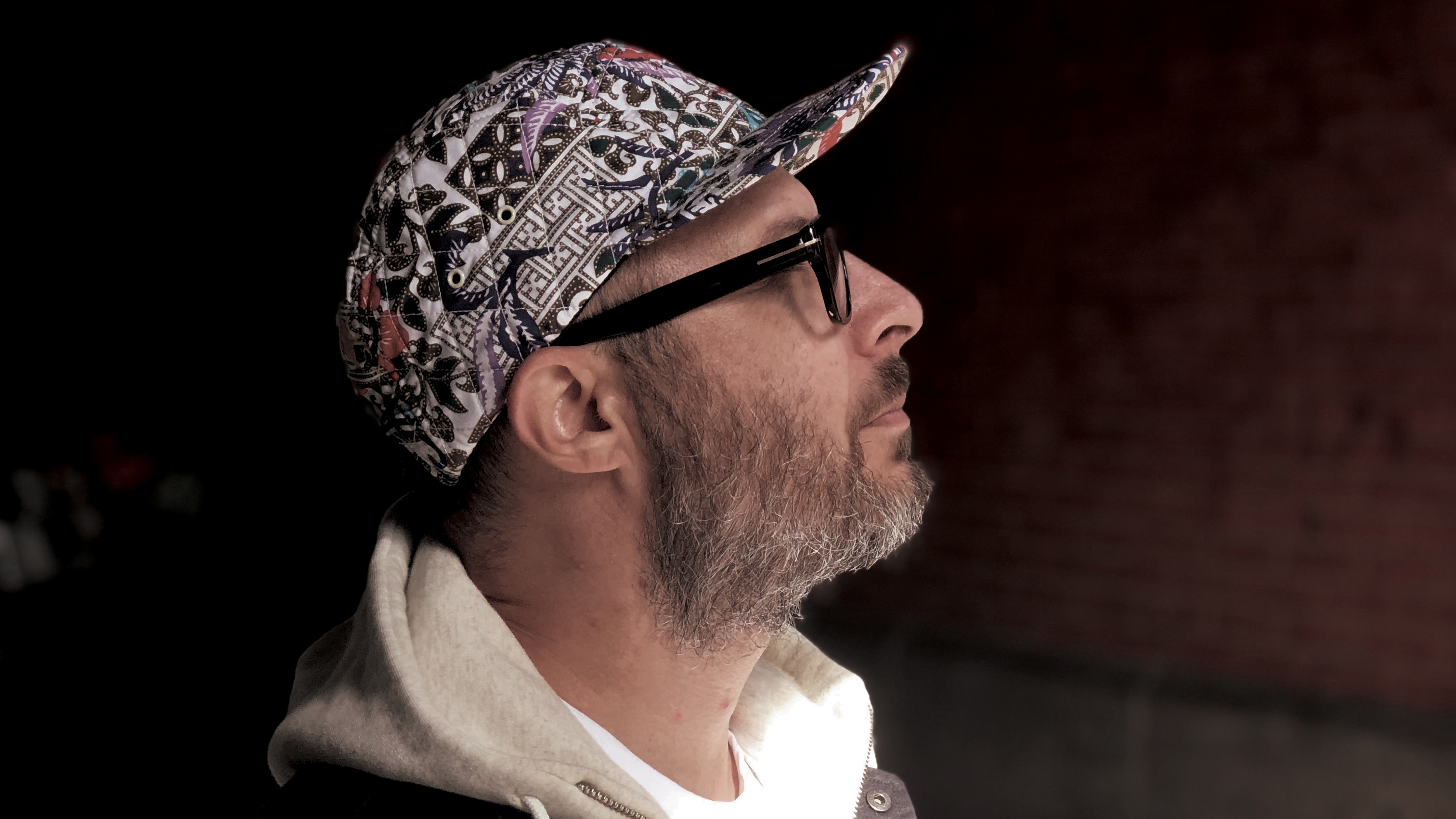
As techno and house music enjoy somewhat of a renaissance, the door has reopened for the likes of DJ/production stalwart Levon Vincent. With a reputation for quality and authenticity and a learned approach to dance music’s past, it’s of no surprise to see him hone his techno craft with laser-like precision on fifth studio album, Work In Progress.
Forgoing the story arcs that featured on last year’s architectural-sounding Silent Cities, the Berlin-based producer’s latest LP is a compilation of club-ready techno jams designed for any DJ to pick up and play. As referred to in the title, self-improvement is a philosophy that Vincent holds dear. Rather than complicate, Work In Progress delivers old-school techno that’s piercing, gritty and straight to the point.
Who introduced you to DJing, and how have you felt the culture has changed over the years since you started in the late ’80s?
“My very first interaction with turntables was around 1989 or so. My friend’s older brother had a pair and he also had two copies of Royal House by Todd Terry and I’ll House You by The Jungle Brothers. DJ Red Alert used to play that on the radio all the time and I was just a kid back then, but it stuck with me. I knew I wanted to get involved in studio work and produce music with machines at that time.”
Is it true that British EBM band Nitzer Ebb had quite an influence on your early interest in production?
“I saw them perform alongside Front 242 when That Total Age came out. To me, it sounded like anti-NY music… or if not ‘anti’ then almost definitely ‘other than’. It was very exotic compared to freestyle and hip-hop – the two sounds that dominated NY radio in the ’80s. But the album that really grabbed me was Cabaret Voltaire’s The Covenant, The Sword and The Arm of The Lord. Man, I can’t recommend that one enough – even in 2023! I’ve played I Want You from that LP in Berghain before and it was massive.”
You studied music theory with Dary John Mizell and undertook masterclasses with Philip Glass. How did those experiences help prepare you for a career in music?
“Dary John wrote a piece called Music for 24 Cellos that had a big influence on me in many ways. Have you heard it before? It’s amazing and very powerful. He liked to play with time and has written pieces of music that last days. The best aspect of studying with Dary John was that he was 15 or 20 years ahead of anything academic or happening in popular culture. He gave me an aerial perspective – a sense of where I could go should I choose to, and I wanted to sneak those techniques into the minds of the people on the dancefloor because they’re susceptible to them when they’re dancing.”
What about the influential composer Philip Glass?
“It’s more suitable to talk about my experience with Philip than to try to claim I was some sort of student of his. He was a kind human and a real gentleman who spoke frankly to me about what he liked and disliked about his own career.
“I remember him suggesting that I survive by driving a taxi so I could spend all day listening to my work on the car stereo. To me, he represents New York in the same way Warhol does. When you get around these older, accomplished guys they have a sort of ‘wizard’ vibe – you learn more by speaking to them than you would from any textbook.”
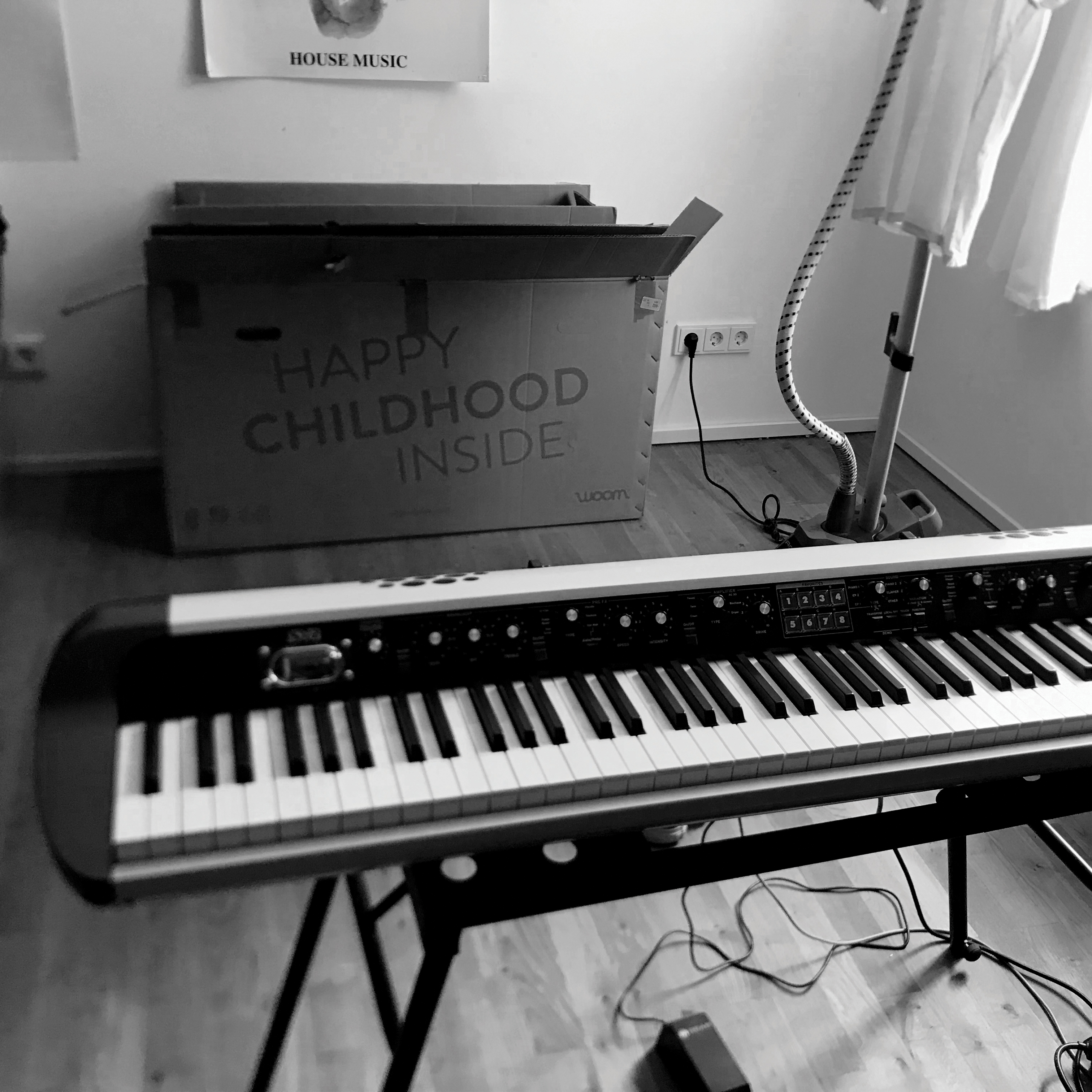
How have you found circumnavigating the pitfalls of running your own label in 2023? Is it something you’d recommend?
“I love running a record label and it’s been super fun. More than anything, it’s been part of my three-step mantra – write, release and play on the best sound systems in the world. There really isn’t a downside to running your own project because you get to do what you want without requiring approval. It’s not that I don’t trust others’ opinions, rather that it takes too long to be reliant on secondary input and I can stay nimble and quick with my artistic decisions.”
Is the much touted increase in vinyl sales something that you’ve noticed as a label owner?
“I noticed a small uptick during the pandemic, but that happened years after the vinyl resurgence. At one point I was consistently selling 3,000-5,000 copies of a release, but then Record Store Day got sullied with cheesy major label reissues and a lot of people grew sour about that and vinyl fell away from the foreground.
“I don’t really think about all that stuff too often and don’t believe a sweaty club is a place for the vinyl you care about anyway. I love how powerful modern sound systems are but, these days, they’re too loud with too many wild resonances. I believe vinyl is best for collecting, cherishing and taking care of – and maybe bringing out for DJing in your home or smaller venues.”
It’s rumoured that there are backlogs as the industry struggles to keep up with growing demand?
“I don’t know if EKS is still going. There’s the Chinese -operated plant making all the dub records, like old Wackies stuff, but I’ve been with Brooklyn Phono for 21 years now. Initially I worked with Europadisk, but I believe that one is long gone. One thing I can say is that if you’re in NY and want records made, Brooklyn Phono is the best there is – you won’t find more passionate people.”
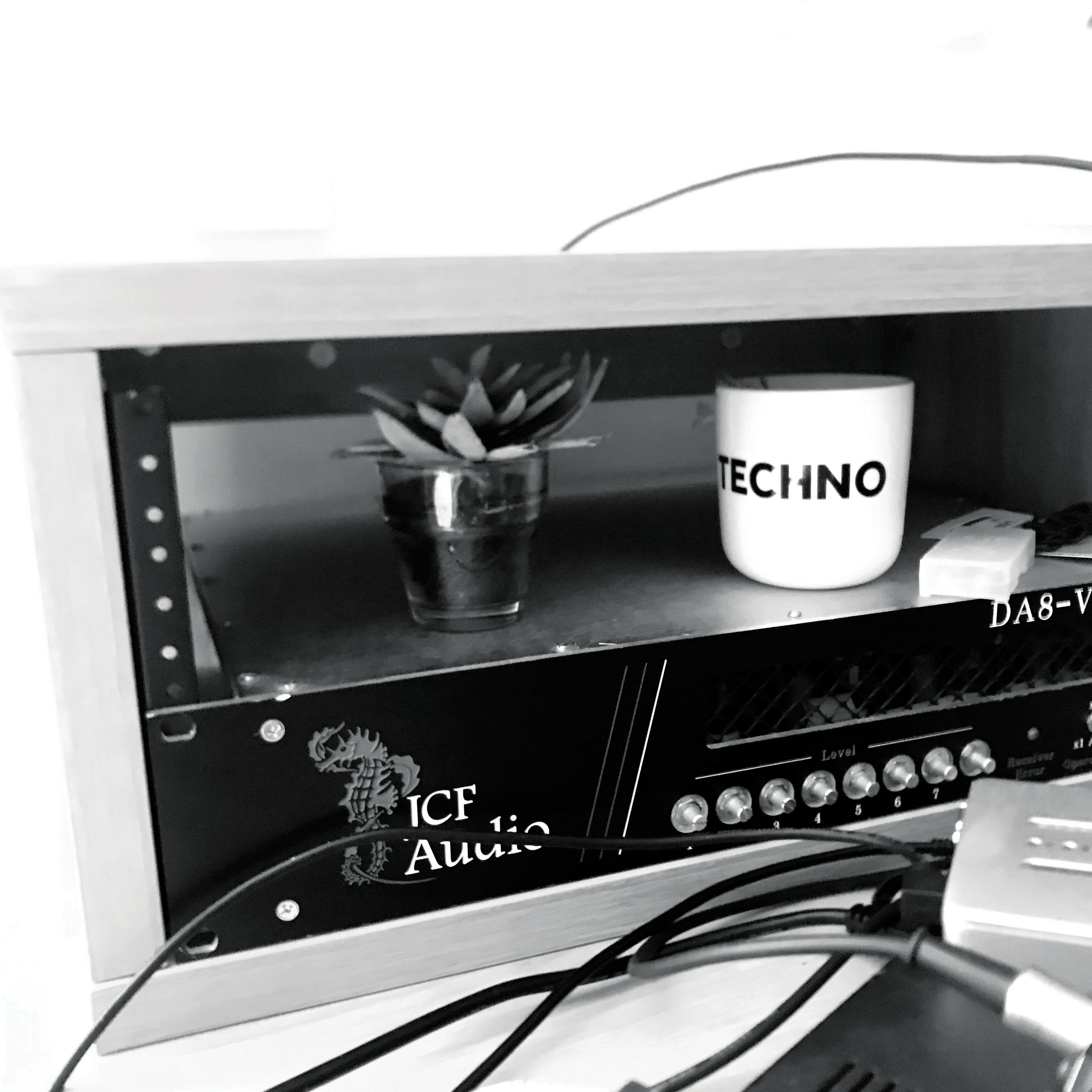
You worked at the legendary Halcyon record shop in Brooklyn. Do you miss those days and do you think we will ever return to the experience of sharing physical music products?
“At Halcyon, we had a coffee machine as well as about 10 couches at any given time – so alongside world-acknowledged sound and an equally reputable DJ booth, it was a bit of a daytime venue. Once per week a bulk vinyl order would arrive from the distro and we’d play those releases on site without hearing them first.
“It was a great way to practise the art of DJing. You take 10-15 records and without knowing what’s on them have to fit them into a mix show with customers there listening. That really sharpens your instinct for when to mix in and out of records and forgo a track’s arrangement by making your own using the EQ or isolator.”
Your last album Silent Cities was released on cassette. Is there a renewed interest in this medium and will you be doing the same for Work In Progress?
“It’s more of a retro thing than say, vinyl, which people value for sound quality. I started by making dumb little tape loops and stuff, so to arrive here some 35 years later is fun. That said – and this is why it’s good to run your own label, I pulled the vinyl for this release because I felt like it.”
Does the album title Work In Progress refer to the album being incomplete in some way or your personal growth as a producer?
“It just means that I’m working on my own self. The learning never stops and that’s what’s so great about music – there is no end to it. You’ll never run out of ideas, or have access to so many ideas from those who came before you, so I’m the work in progress but the LP is super done.”
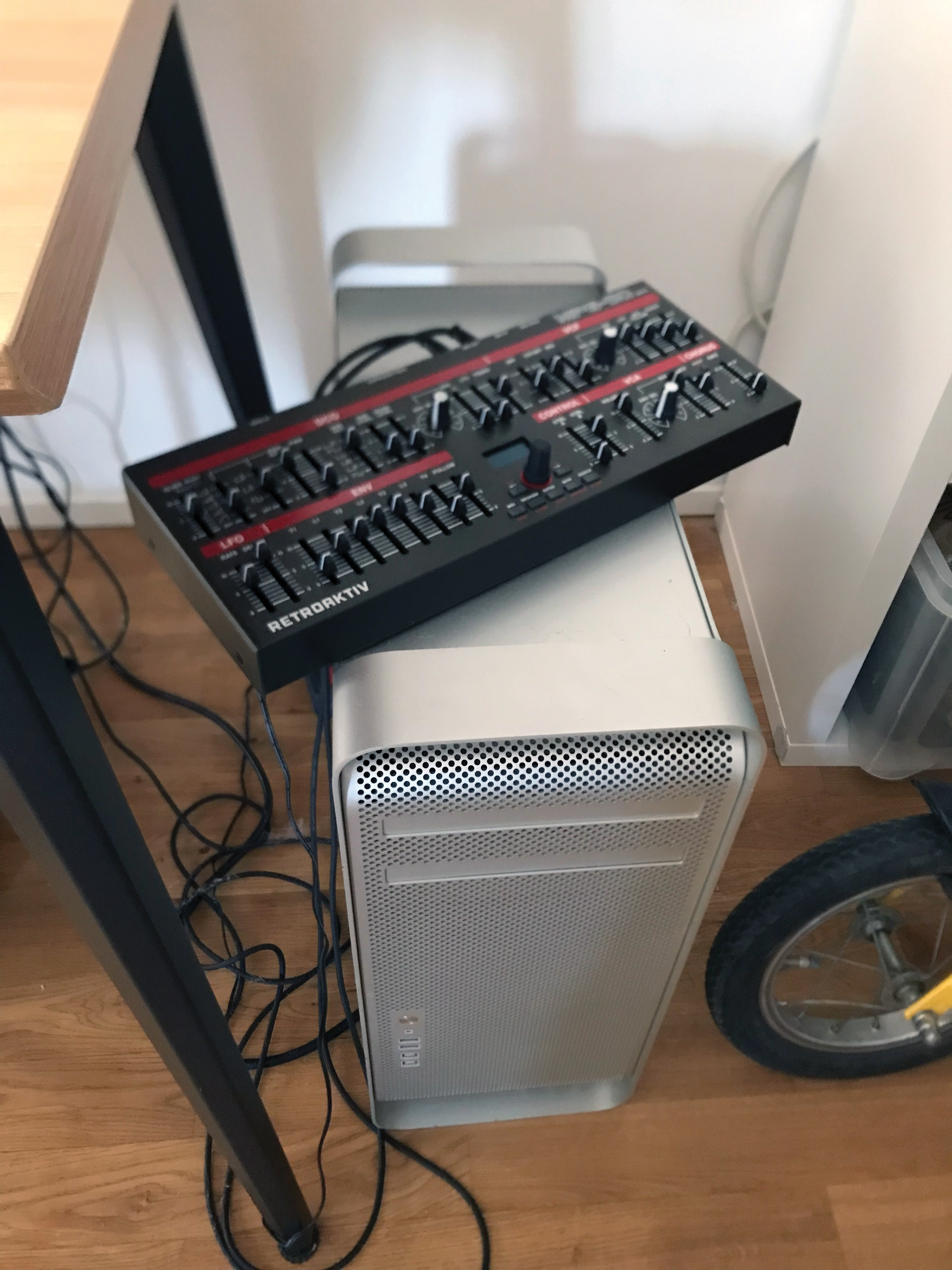
Judging by the length of the tracks, the album seems primarily designed for clubs/DJ sets rather than a home listening experience…
“This record is absolutely intended for DJs to play, and every track on the LP is one that can be played in a club. That’s a first for me, as my previous LPs were about a narrative. Then I thought, why am I sticking to that rule – nobody is making me do that, so how about I make an LP that’s designed for club play?”
It also has a very raw and unpolished feel. Was that another rule that you wanted to stick to?
“People have frequently used the word ‘raw’ to describe what I do, I know when a track works or when a production is complete because, as the originator of the material, I can feel it.
“In that regard, ‘raw’ means untouched and pure, which I think is good. If you do that for your passion project then when you get to occasionally work with other labels you can get a little edge in terms of quality control. When you’re true to your intent, you take it with you.”
The cold techno sound is offset by moments of melody and warmth. Are those extremes deliberately designed to heighten each other?
“I do like that juxtaposition – the beauty and the ugliness. It’s kind of random with regard to electronic music, but I adopted the concept from the Sting song Every Breath You Take. I noticed that when I listened to his pop tunes he would write in major keys when he wanted to deliver a subject matter that might be considered dark or a bit scary. In that way, if you take a ‘happy’ Ionian mode but have really dark elements to express, the delivery itself won’t be too alienating.”
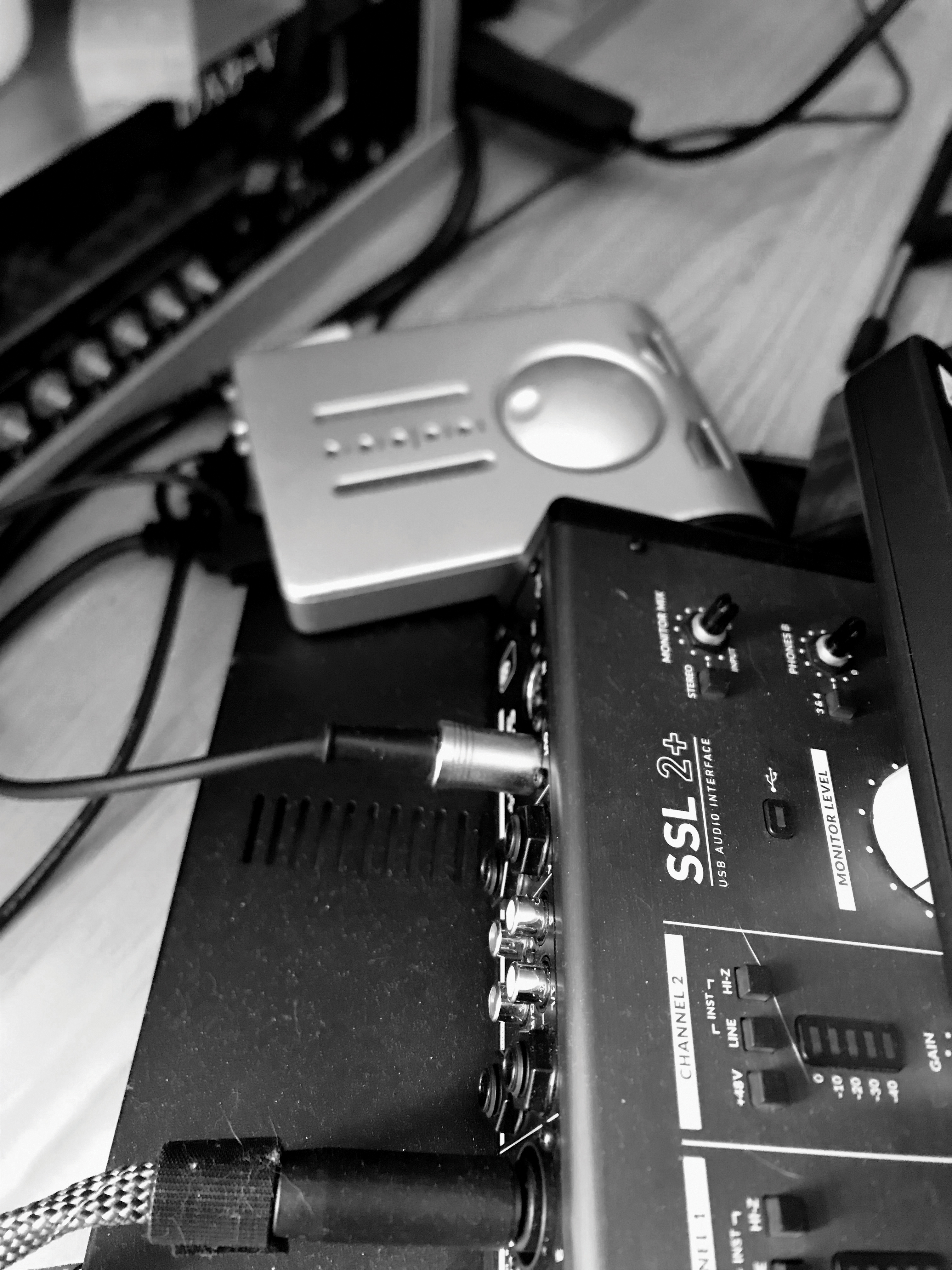
Tell us about your studio. Is it home based or external and do you favour a mostly hardware-based setup?
“I don’t even have a studio currently. I sold everything during the pandemic so now I’m starting over. It was tough, but I’m able to say now that my kids really didn’t even know we hit a patch in the road and by selling everything I was able to keep the lifestyle that they knew and were familiar with.
No matter how successful you get, you’re only ever one step away from being flat-busted again
“That’s the truth about being an artist and probably the most important thing I will say in this interview, because people in the arts often have their ups and downs but are not speaking on the downs because they have an image to maintain. The bottom line is, no matter how successful you get, you’re only ever one step away from being flat-busted again.”
Did you have a specific starting point for the creation of these techno tracks, or was it different every time?
“If I’m at a DAW I love to work with drums first, but I’ll often just sit at a piano and write the tune before any computer is involved. It depends on whether I want something melody-driven or drums-driven, and it’s best to have several different approaches because I’ll generally build a whole tune out of the first motive. Everything goes through Reaper. That’s the big mama. I also opened LUNA recently and think I’ll experiment with that because I’m attracted by how luxurious it feels.”
The track Driving sounds like a classic in the making. What can you tell us about some of the nonstandard intervals behind the beats?
“That’s a technique I first started using on Small Whole-Numbered Ratios from [Vincent’s self-titled LP, 2015]. I like to put techniques out there that I consider to be innovative to see if they catch on. I don’t do that kick style too often so I’m not recognised for it, but it could be its own genre.”
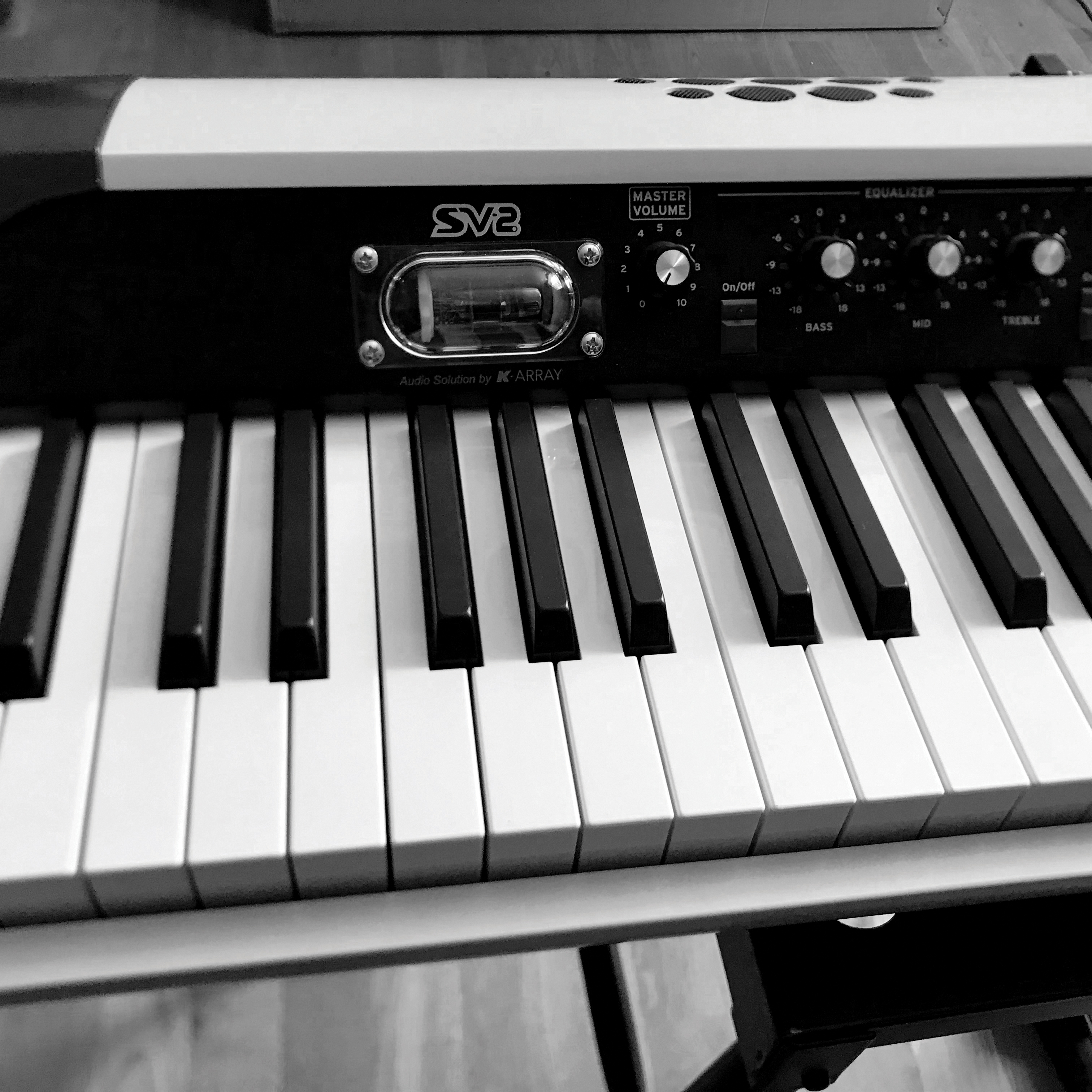
We’re assuming Jomox TrackV1 refers to the JoMoX drum machine?
“Yes, that’s from my JoMoX Mbase, which has been used on most of my tracks over the years. 75% of my releases have a JoMoX kick – I just love that piece of kit.”
Sunday Mornings stands alone as a much warmer house track. Were the piano refrains performed in real-time?
“That is a good demonstration of how using tunings other than equal temperament can reach people. I’m a terrible player, so while everything I do is recorded live, I must point out that I might do up to a dozen takes sometimes. I can flow in real-time without tripping up, but I do like to rehearse something and play it a few times before I nail it.”
Do you lean more towards vintage gear than modern?
“I never saw an advantage to one or the other. A nice vintage synth with some tuning stuff going on can sound pretty good, but if you layer that with the punch of software it sounds ten times better. Then again, software alone sounds boring and clinical half the time.
“The only thing I must have is at least one vintage synth from the Roland Juno series. I probably paid $200 for it back then and I also got a Roland 909 for $300 and a Yamaha DX7. I don’t even need a drum machine anymore and only have my converters because I couldn’t find a buyer.
“What I must replace though is my Chandler line mixer. Right now I’m going with a Neve 5067 and a JCF Audio converter. At the end of the day, audio processing is much more important to me than the source.”

Some of your tracks have a metallic feel to them. What key pieces of outboard are you using for that sheen?
“One thing I really relied on for my first couple LPs was my 16 channels of Aurora pres. They’re so buttery, and have a trim knob so you can push ’em, and I like the way mic pres sound on synths rather than using direct line inputs. I forget the company, but they make these green Jensen DI boxes. I have several of them and routing synths into the DIs and then to a mic pre often makes midrange synth elements like leads or pads come alive.”
We read that you had or have 17,000 vinyl records. Are you still a collector and are you mostly using vinyl for live or studio sampling?
“My first big lifetime collection had about 14,500 records and I added a few more thousand since then so, yeah, I guess that’s 17,000, but the biggest part of that collection went away before I moved to Berlin.
“The only way I would have been able to move on in life was to be rid of all that weight, but the collection got infested with paper mites. Do you know about paper mites? It’s kind of a rare circumstance that only a paper mill might have to deal with, but my collection had to be disposed of due to an infestation. That’s just another example of life in the arts though. Like I said, your career will see a few peaks and valleys.”







